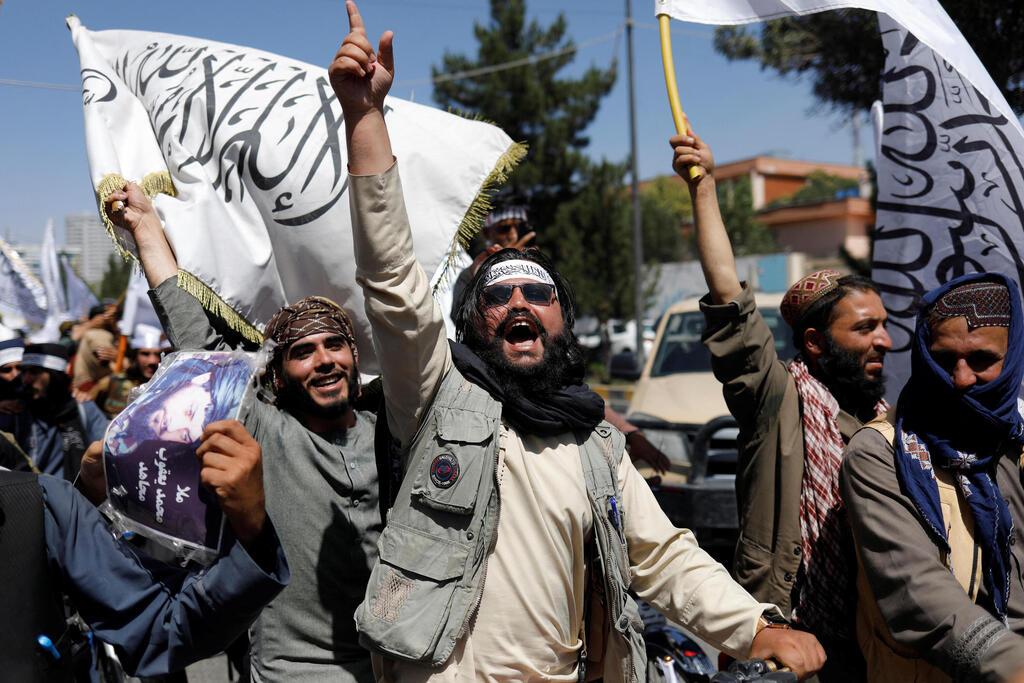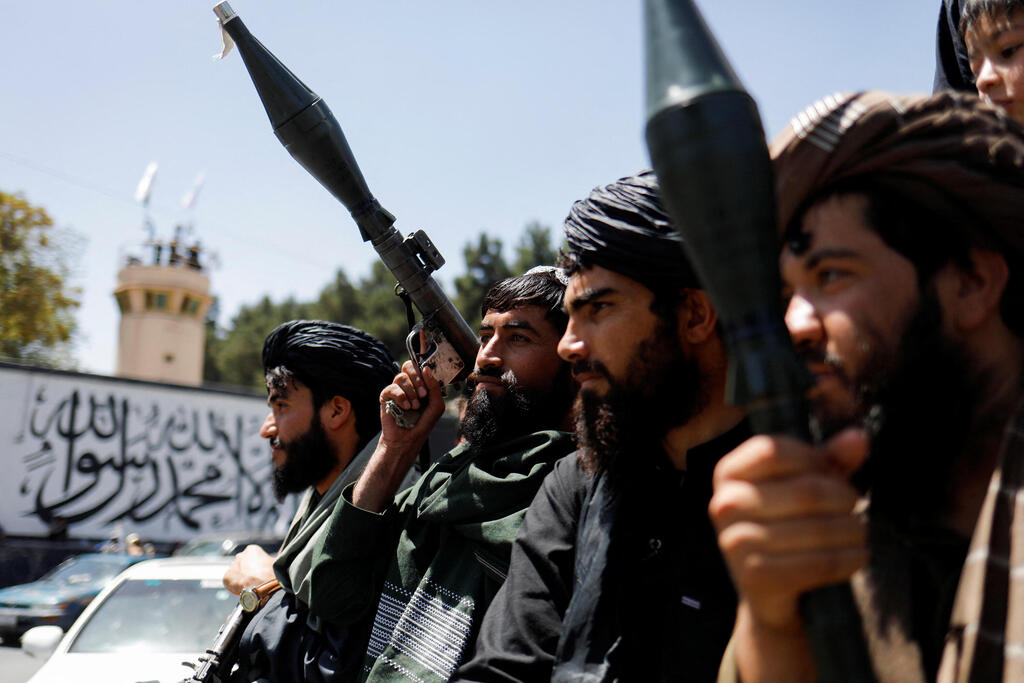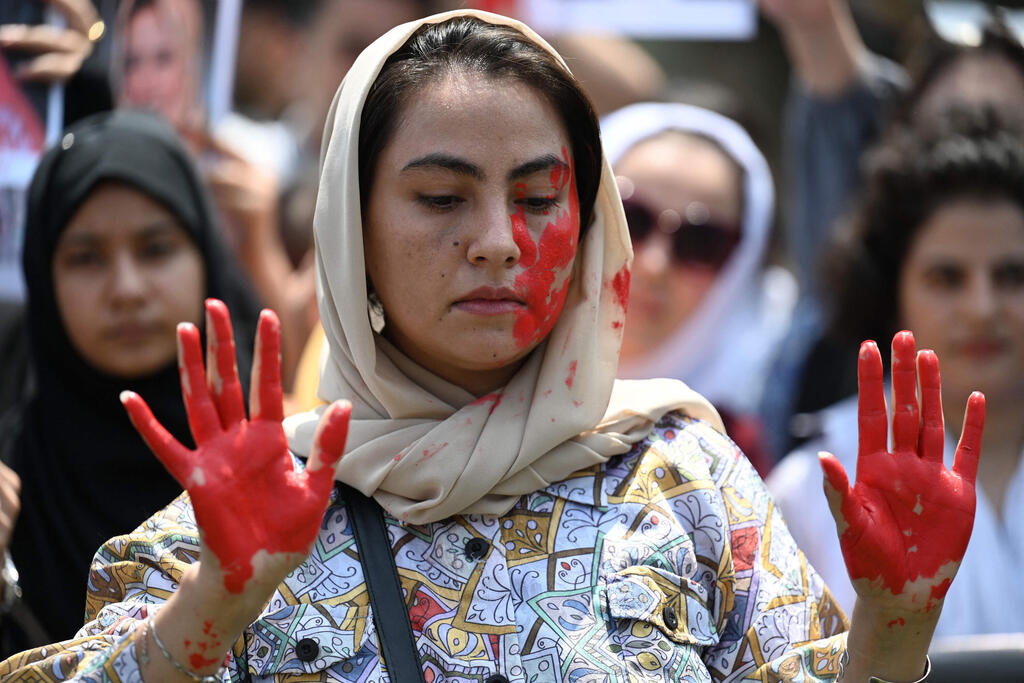Getting your Trinity Audio player ready...
Both al-Qaeda and ISIS-K are growing
After becoming established in Afghanistan, the strength of ISIS-K was gradually eroded because of limited support from local inhabitants, targeted assassinations by the United States, and their ongoing war with the Afghan army and the Taliban. Still, it would seem that the organization has to a large degree regrouped writes Eran Lahav.
A U.N. report issued in June 2023 warned that since the U.S. withdrawal from Afghanistan in August 2021, various terrorist organizations such as al-Qaeda and ISIS-K have continued to grow and to improve their fighting capabilities. The report also showed that ISIS-K has exploited the Taliban’s ability to entrench its control of remote regions in Afghanistan. Thus in so doing, ISIS-K has managed to gain strength, prevent desertions, and ramp up attacks on senior Taliban officials.
Al-Qaeda is now closely working with the Taliban
There are indeed signs that the organization is coming back to life in Afghanistan. According to a June 2023 report by the U.N. Sanctions Committee, al-Qaeda has established new training facilities in the country’s Kunar and Nuristan Provinces. The Salafist organization is indeed now closer than ever before to the Taliban and the organization’s operatives are serving as members of the Taliban regime.
After regaining control of the nation in August 2021, the Taliban has incorporated many groups listed as terrorist organizations, which fought with it against the U.S.-supported Afghani republic. Its relationship with al-Qaeda also did not end, and Bin Laden’s vision of a global caliphate based in Afghanistan has become the guiding principle of the war that has restored the Taliban to power.
In fact, the Taliban provides al-Qaeda commanders and operatives with all they need, from weapons and living quarters, through passports and other documents, to access to the vast drug smuggling network constructed over decades in order to establish the heroin empire under the Taliban’s auspices. Terrorists from Yemen, Libya, and Somalia as well as Palestinians train in renewed training camps run by al-Qaeda in Afghanistan, which receives full backing from the renewed Taliban regime.
It would seem that Afghanistan, which once sheltered Osama Bin Laden and the planners of the 9/11 attacks, is once again becoming a hotspot for global jihadist groups with worldwide ambitions. This phenomenon is a definite warning sign in Afghanistan.
The European Islamist terrorist threat is acute
Europe is increasingly worried given the Euro Cup being played in Germany and the Olympic Games in Paris. German Interior Minister Nany Faeser said that the Islamic State of Khorasan Province is presently the biggest Islamist threat to Germany and that the danger posed by Islamist terrorism is still acute. As a rule, ISIS-K is the most active and consistent branch of the Salafist organization on European soil.
In the past year, ISIS-K has planned 21 attacks in nine European countries, compared to eight in the previous year. German security forces have indeed managed to foil some ISIS-K attack plots over the past 18 months.
These intelligence successes, some of which took place in Austria, include the prevention of attacks targeting Christian sites at Christmas. In Vienna, three terrorists allegedly planning to attack St. Stephen’s Cathedral were arrested, while in Germany, four Tajiki terrorists planning to massacre the congregation attending services in the famous Cologne Cathedral on New Year’s Eve were successfully apprehended.
ISIS-K claimed responsibility for Moscow attack
The recent terrorist attack on a Moscow concert venue in March 2024, one of the deadliest in Russia in decades which saw 173 concertgoers killed, again refocused global attention on the Islamic State in Khorasan Province (ISIS-K) which immediately claimed credit. What is less known is that on the same day the organization also carried out a suicide bombing in Kandahar, Afghanistan, which led to the deaths of 21 people.
While ISIS and al-Qaeda are competing with one another throughout the world not just in Afghanistan, they are also gaining strength and recruiting operatives and supporters throughout the West
As the U.S. redirects intelligence, terrorist groups exploit Afghanistan
One of the reasons for ISIS-K’s resurgence of strength and the reawakening of al-Qaeda in Afghanistan is the fact that the United States redirected its intelligence resources in the Middle East and Southern Asia to focus on China and Russia. U.S. intelligence sources feel that unlike the growing strength of ISIS-K, al-Qaeda in Afghanistan has been waning without a senior leader since the assassination of Ayman al-Zawahiri in July 2022. While the United States is betting on other centers to deal with al-Qaeda, ISIS-K continues to attack many targets in Afghanistan.
World leaders express their concern over mounting terrorism in Afghanistan
Leaders of neighboring and regional nations, such as Iran, Pakistan, Russia, Saudi Arabia, and Central Asian states, have already expressed concern about the threat posed to them by the Taliban’s transnational ambitions in this regard as this hothouse of terrorism in Afghanistan is obviously gaining strength. Nonetheless, the West is yet again making the mistake of thinking that it can negotiate or otherwise interact with a radical organization such as the Taliban. Whilst it is true that the Taliban also fought ISIS, both organizations have the same goal: the establishment of a global Islamic caliphate.
Get the Ynetnews app on your smartphone: Google Play: https://bit.ly/4eJ37pE | Apple App Store: https://bit.ly/3ZL7iNv
Whoever thinks that if ISIS-K is defeated then ISIS and all its extensions will become a thing of the past, is not only mistaken but also misleading others. ISIS is gaining strength not only in Afghanistan but also primarily in Africa. While ISIS and al-Qaeda are competing with one another throughout the world not just in Afghanistan, they are also gaining strength and recruiting operatives and supporters throughout the West. The West must therefore realize that a new Afghanistan is liable to be created in Africa or in Asia at any time where it can attack Western targets at the time of its choosing.




